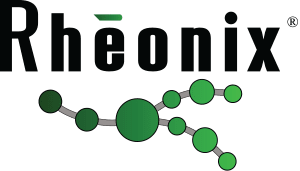Jan 12, 2024Rheonix collaborates with FDA on cyclospora testing
Rheonix Inc. and the Food and Drug Administration (FDA) collaborated on publishing data confirming the detection of cyclospora cayetanensis in produce samples.
The data verify the performance of the fully automated Rheonix cyclospora cayetanensis (C. cayetanesis) assay developed under a Research Collaboration Agreement (RCA) between Rheonix and the Office of Applied Research and Safety Assessment (OARSA) within the FDA’s Center for Food Safety and Applied Nutrition (CFSAN). Published in the peer-reviewed journal Microorganisms, the study demonstrates that the automated Rheonix C. cayetanensis assay achieved consistent and high detection rates for C. cayetanensis in samples of high-risk fresh produce matrices such as herbs, leafy greens, and berries with low levels of oocysts.


The Rheonix C. cayetanensis assay is based on genetic targets developed and published by the FDA and is processed using Rheonix reagents and consumables on the Rheonix Encompass Optimum workstation. The study shows the integration and verification of the FDA mitochondrial target into the fully automated and streamlined workstation, which simplifies the workflow by performing DNA isolation, PCR, hybridization, results visualization and reporting of results. The fully automated method enables detection of low levels of C. cayetanensis in produce samples, saving approximately four hours of hands-on time per 24-sample run, compared with the prior workflow. The assay is now available for use by food and environmental testing laboratories.
Cyclospora cayetanensis is a protozoan parasite that causes cyclosporiasis, a human diarrheal disease. Cases of cyclosporiasis have been observed in the U.S. since the 1990s and have historically been associated with imported fresh food or international travel. During the 2018 cyclosporiasis outbreak investigations, it became clear that produce grown in the U.S. could also be at risk for C. cayetanensis contamination, and over 10,000 domestically acquired cases of cyclosporiasis have been identified since 2018. Illnesses and outbreaks caused by C. cayetanensis are associated with the consumption of fresh produce such as herbs, berries, and leafy greens.
The FDA-Rheonix RCA was established in February 2023 to rapidly develop, test, and validate a fully automated screening assay that can detect low levels of C. cayetanensis in fresh produce, soil, and surface agricultural water. Joint development of the assay was announced in June 2023, and addresses the FDA’s Cyclospora Prevention, Response and Research Action Plan priority to “engage with industry, academia, and test kit companies to encourage the modification of available rapid test kits to specifically detect C. cayetanensis, and to develop industry best practices that can be used to test for C. cayetanensis.”
The FDA and Rheonix contributed materials, effort and subject matter expertise to the collaboration. The assay design addresses a Centers for Disease Control and Prevention proposal that detection assays capture additional cyclospora species of potential public health concern.
According to the release, the use of Rheonix technology by the FDA does not constitute an endorsement.














